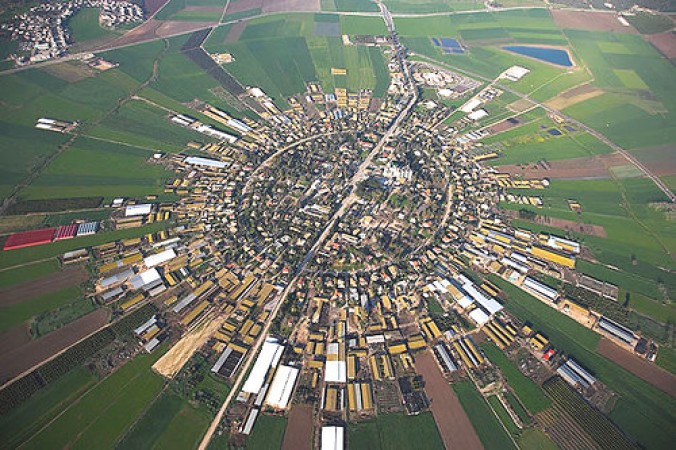
As our world becomes increasingly urbanized, the concept of planned cities has gained significant attention. But are these meticulously designed urban spaces truly effective in fostering sustainable growth, enhancing quality of life, and addressing the complex challenges of modern urbanization? In this article, we'll delve into the evolution of planned cities, weigh their advantages and disadvantages, and assess their overall effectiveness in creating livable and thriving communities.
Planned cities, also known as "new towns" or "model cities," are urban areas that have been intentionally designed from scratch, often with a clear layout, infrastructure, and designated spaces for various functions. Unlike traditional cities that have evolved organically over time, planned cities are the result of careful urban planning and design principles.
The idea of planned cities dates back to ancient times, with notable examples such as Mohenjo-daro in the Indus Valley and the grid-based city of Alexandria in ancient Egypt. However, it was during the Renaissance and Enlightenment periods that the concept gained renewed interest, driven by a desire to create more efficient and orderly urban environments.
Planned cities offer several potential advantages that can contribute to their effectiveness in accommodating population growth and fostering sustainable development.
One of the key benefits of planned cities is the opportunity to create optimized infrastructure. Planners can strategically lay out roads, public transportation systems, and utility networks, reducing congestion and promoting efficient movement within the city.
Many planned cities are designed with sustainability in mind. Green spaces, renewable energy sources, and eco-friendly architecture can be integrated right from the planning stages, minimizing the city's environmental impact and promoting a healthier lifestyle for residents.
In planned cities, land use is carefully allocated for various purposes such as residential, commercial, and recreational areas. This efficient allocation can prevent urban sprawl, protect natural habitats, and create well-defined neighborhoods.
Planned cities often incorporate modern amenities such as smart technologies, state-of-the-art healthcare facilities, and educational institutions. This focus on advanced infrastructure can enhance residents' quality of life and attract businesses to the area.
While planned cities offer many benefits, they are not without their challenges and criticisms.
One of the criticisms leveled against planned cities is the potential lack of organic growth and character. Traditional cities have a unique charm that comes from centuries of gradual development, whereas planned cities might feel sterile or lacking in history.
Planned cities can sometimes struggle with social equity issues. If not properly planned, they might inadvertently segregate different socio-economic groups or lack affordable housing options, leading to inequality.
Implementing a planned city requires significant resources, coordination, and political will. Delays, budget overruns, and unforeseen obstacles can hinder the successful execution of the initial vision.
The world is constantly changing, and planned cities must be adaptable to new technologies, demographic shifts, and economic trends. A rigid plan might not account for future developments, potentially rendering the city obsolete.
Brasília, often hailed as a modernist masterpiece, was designed by architect Oscar Niemeyer and urban planner Lúcio Costa. Its innovative layout and striking architecture reflect the optimism of mid-20th century urban design. However, the city has faced challenges related to transportation and social inequality.
Songdo, a shining example of a smart city, boasts advanced technologies and eco-friendly infrastructure. It was designed to be an international business hub with a focus on sustainability. While it has succeeded in attracting international companies, its residential population has been slower to grow than anticipated.
The effectiveness of planned cities hinges on various factors, including thoughtful design, flexibility, and the ability to adapt to changing circumstances.
Planned cities can indeed be effective in providing solutions to urban challenges, especially when designed with sustainability and inclusivity in mind. However, they must also allow for organic growth, promote social equity, and remain open to evolution.
As we continue to navigate the complexities of urbanization, the lessons learned from both successful and less successful planned cities can guide us towards more effective urban development strategies.
The question "Are planned cities effective?" doesn't have a one-size-fits-all answer. The effectiveness of a planned city depends on a multitude of factors, including its initial design, adaptability, social inclusivity, and alignment with the needs and aspirations of its residents. When done right, planned cities can be powerful tools for shaping a better urban future.
So, whether the next planned city becomes a thriving model of sustainable living or faces challenges requiring innovative solutions, one thing is clear: the evolution of urban design is an ongoing journey, and each new planned city adds to our collective knowledge about creating livable, vibrant, and effective urban spaces.
Say Goodbye to Pimples by Avoiding These Culprits!
Older Adults' Sexual Wellness: Managing Changes and Embracing Intimacy